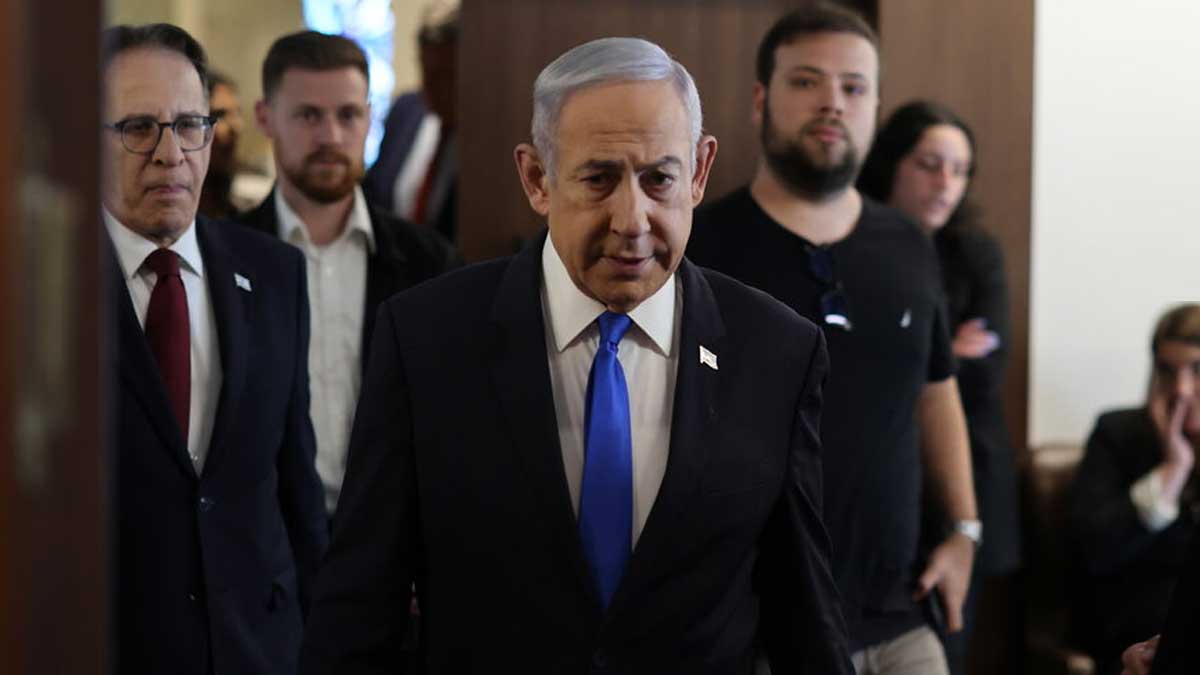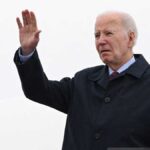- Home
- Billionaires
- Investing Newsletters
- 193CC 1000
- Article Layout 2
- Article Layout 3
- Article Layout 4
- Article Layout 5
- Article Layout 6
- Article Layout 7
- Article Layout 8
- Article Layout 9
- Article Layout 10
- Article Layout 11
- Article Layout 12
- Article Layout 13
- Article Layout 14
- Article Sidebar
- Post Format
- pages
- Archive Layouts
- Post Gallery
- Post Video Background
- Post Review
- Sponsored Post
- Leadership
- Business
- Money
- Small Business
- Innovation
- Shop
Recent Posts
Netanyahu Criticizes U.S. Student Protests

Israeli Prime Minister Benjamin Netanyahu has strongly criticized the recent surge in student-led protests at U.S. colleges and universities against Israel’s military actions in Gaza, drawing parallels to a dark chapter in history. In a speech, Netanyahu condemned these protests as “unconscionable” and called for them to be unequivocally condemned. He went further to suggest that these demonstrations were driven by antisemitism, accusing the protesters of advocating for the annihilation of Israel.
Netanyahu’s remarks came amidst a backdrop of escalating tensions on college campuses across the United States, with reports of student-led protests and encampments emerging at institutions like Columbia, Yale, and the University of Texas at Austin. While the majority of these protests have been nonviolent, they have sparked widespread concern and debate, particularly regarding allegations of antisemitic rhetoric and behavior.
The Israeli Prime Minister’s comments reflect a growing unease among some political figures and observers about the nature and impact of these protests. He lamented what he described as the takeover of “leading universities” by what he termed “antisemitic mobs,” portraying the situation as “horrific” and drawing parallels to the rise of similar sentiments in German universities during the 1930s.
Netanyahu’s criticism extended beyond the student protesters to include university presidents, whom he accused of offering “shameful” responses to the demonstrations. While he did not name any specific universities or presidents, his remarks underscored a broader concern about the perceived lack of action or condemnation from higher education leadership in response to these protests.
The Israeli Prime Minister’s comments have added to a chorus of voices expressing alarm over the recent wave of student-led protests. House Speaker Mike Johnson and President Joe Biden have both condemned what they described as “blatant antisemitism” exhibited during these demonstrations. These concerns have been further fueled by reports of antisemitic incidents, including intimidating chants and threats directed at Jewish students and faculty.
The escalating tensions on college campuses highlight the complex and sensitive nature of the Israeli-Palestinian conflict and its reverberations around the world. As universities grapple with how to address these protests and their underlying causes, the debate over freedom of expression, academic freedom, and the boundaries of political activism continues to intensify.
Recent Posts
Categories
- 193cc Digital Assets2
- 5G1
- Aerospace & Defense46
- AI37
- Arts3
- Banking & Insurance11
- Big Data3
- Billionaires449
- Boats & Planes1
- Business328
- Careers13
- Cars & Bikes76
- CEO Network1
- CFO Network17
- CHRO Network1
- CIO Network1
- Cloud10
- CMO Network18
- Commercial Real Estate7
- Consultant1
- Consumer Tech180
- CxO1
- Cybersecurity68
- Dining1
- Diversity, Equity & Inclusion4
- Education7
- Energy8
- Enterprise Tech29
- Events11
- Fintech1
- Food & Drink2
- Franchises1
- Freelance1
- Future Of Work2
- Games141
- GIG1
- Healthcare78
- Hollywood & Entertainment186
- Houses1
- Innovation42
- Investing2
- Investing Newsletters4
- Leadership65
- Lifestyle11
- Manufacturing1
- Markets20
- Media193
- Mobile phone1
- Money13
- Personal Finance2
- Policy567
- Real Estate1
- Research6
- Retail1
- Retirement1
- Small Business1
- SportsMoney33
- Style & Beauty1
- Success Income1
- Taxes2
- Travel10
- Uncategorized8
- Vices1
- Watches & Jewelry2
- world's billionaires418
Related Articles
Trump Moves $4B Stake in Truth Social Parent, Stock Drops 6%
Donald Trump recently transferred his 57% stake in Trump Media & Technology...
By 193cc Agency CouncilDecember 20, 2024House Rejects Trump-Backed Funding Bill, Shutdown Looms
The U.S. House of Representatives rejected a new government funding bill on...
By 193cc Agency CouncilDecember 20, 2024Trump Named Time’s Person of the Year for Second Time
On Thursday, Time magazine honored Donald Trump as its “Person of the...
By 193cc Agency CouncilDecember 12, 2024Meta Donates $1 Million to Trump’s Inaugural Fund
Meta, the parent company of Facebook and Instagram, has confirmed a $1...
By 193cc Agency CouncilDecember 12, 2024















Leave a comment